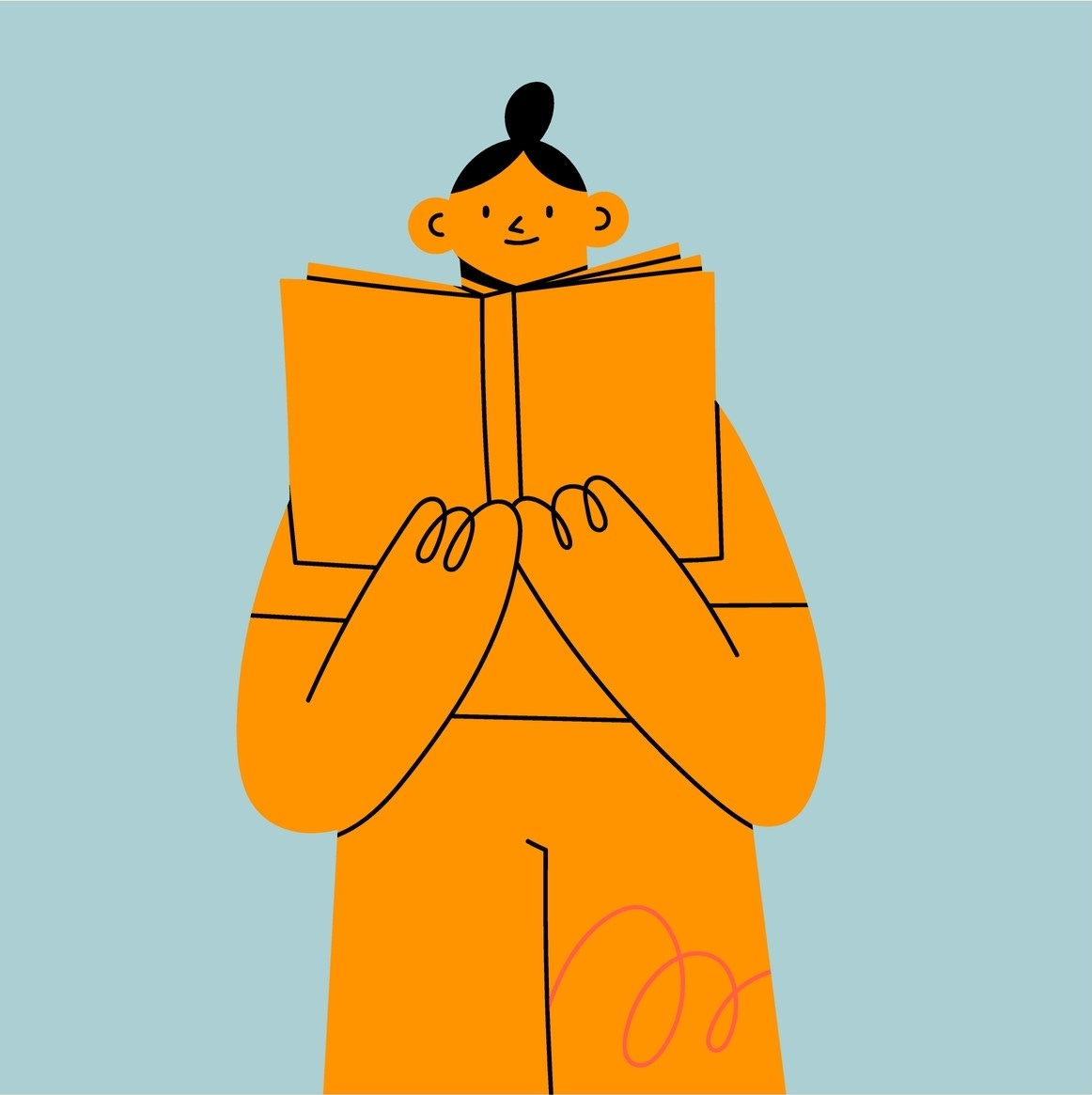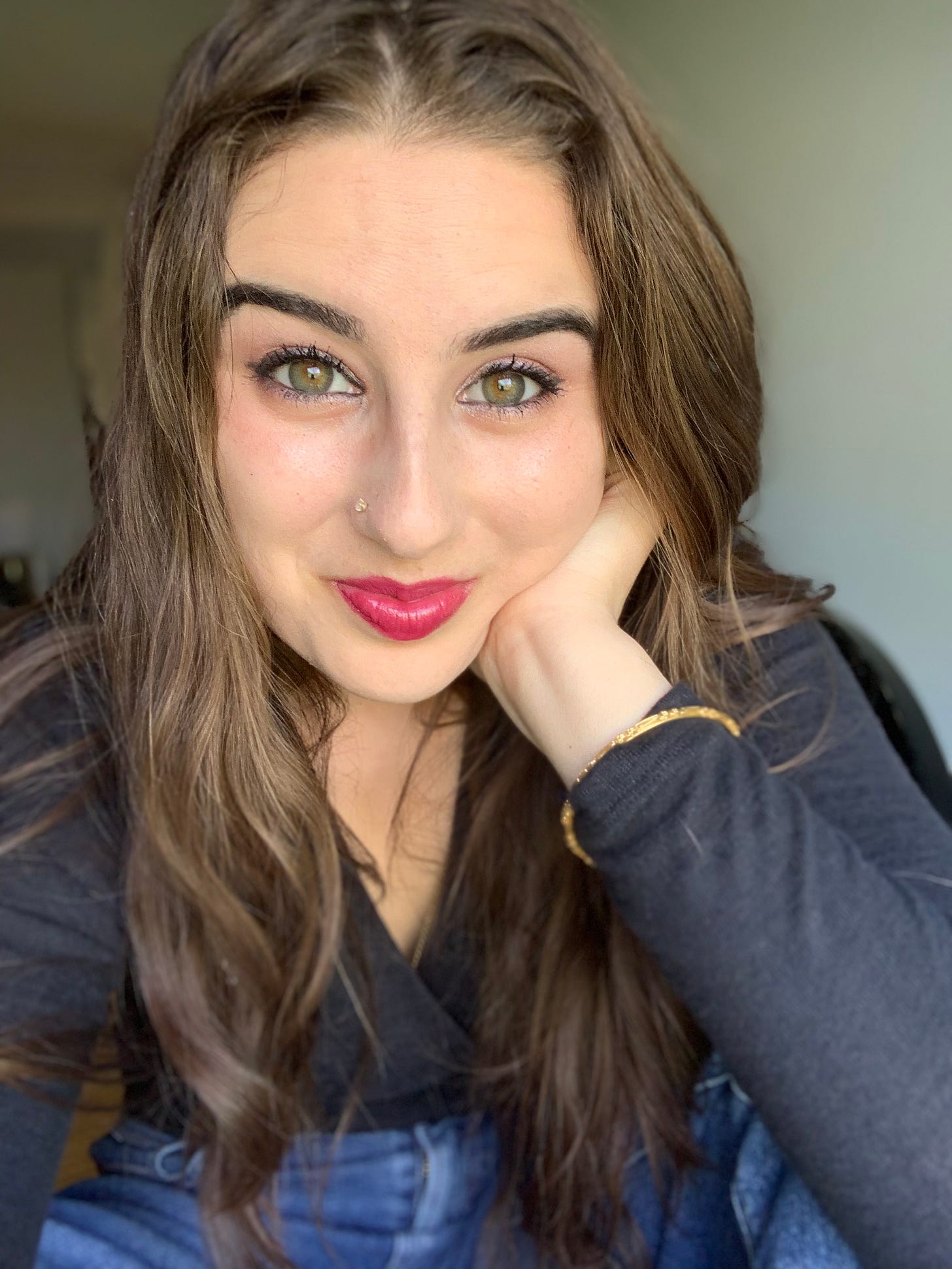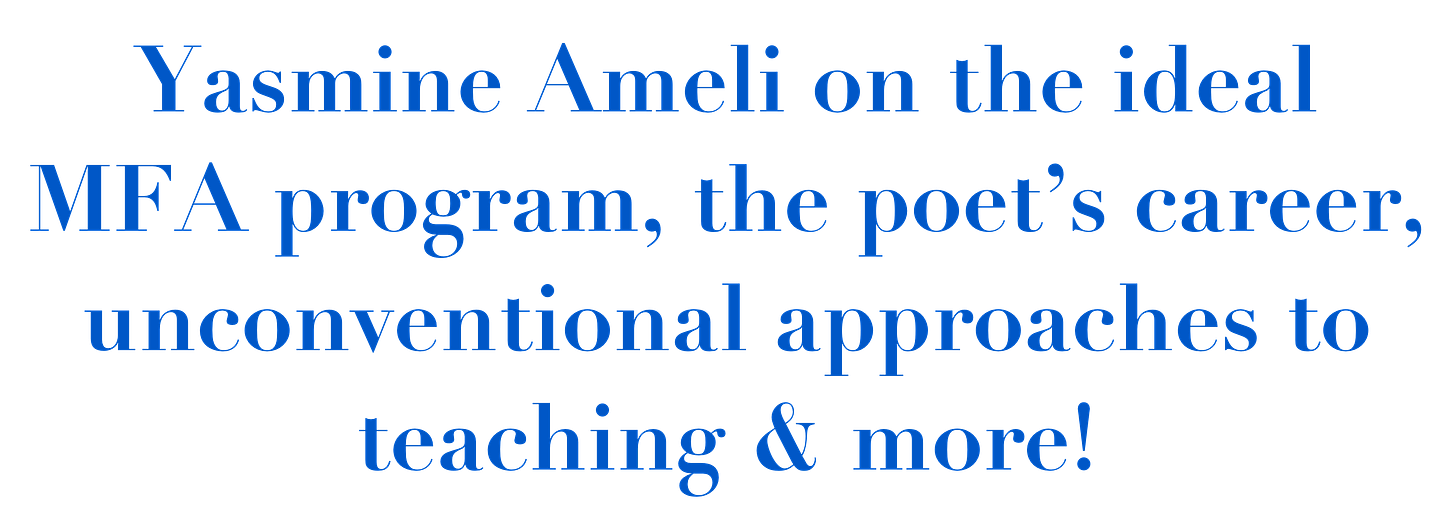Yasmine Ameli on the ideal MFA program, the poet's career, unconventional approaches to teaching & more!
Alumni Spotlight with Virginia Tech alum (M.F.A. in Poetry)
This is our first Spotlight post and we’re excited that the wonderful Yasmine Ameli is with us to excavate her M.F.A experience as well as giving us a glimpse into her creative life now. Going forward, we’ll be having regular Spotlight features with other M.F.A alumni, M.F.A program directors, students currently pursuing their M.F.As, and also experts from the poetry and publishing world at large.
Our next Spotlight coming on January 3rd will feature Iowa Writer’s Workshop alum and Virginia Tech M.F.A. director Matthew Vollmer.
These Spotlights are for paid members only. Subscribe now to say in the loop. We currently have a Holiday Special Offer of 25% off annual memberships until the end of December!
Yamine Ameli (she/her) is an Iranian American poet and essayist based in Massachusetts. Passionate about democratizing writing, publishing, and arts funding resources, she works as a holistic writing coach for creative writers seeking guidance on cultivating sustainable writing practices. Her writing has appeared in POETRY, Ploughshares, The Sun, the Southern Review, and elsewhere; and her projects have received support from Poets and Writers, Reese’s Book Club, MASS MoCA, Monson Arts, Franconia Sculpture Park, the Edith Wharton House, the Straw Dog Writers Guild, and the Oak Spring Garden Foundation. Find her on Instagram @yasmineameli.
Why did you choose your MFA program?
Full funding, cross-genre experimentation, teaching opportunities, multi-genre queer and female BIPOC faculty and alumni, and a small program size!
When you were applying to MFAs, how many programs did you apply to and did you have any sort of an application strategy?
My initial strategy was to read The Creative Writing MFA Handbook by Tom Kealey, audibly groan at the recurring practical advice that I take the GRE (which, at the time, many MFA programs still required as part of the application), complain to my friends that I not only did not want to take the GRE but also would not take the GRE—and whittle down my initial list to 10 schools, mostly in cities on the east coast, that explicitly did not require the GRE.
Once that was sorted, The Creative Writing Handbook helped me figure out how to manage my time before the application deadline, figure out who to ask for recommendation letters (and how), and make a budget (because application fees are expensive—one of many reasons why I was anti-GRE). I took a 3-hour workshop at Grub Street (a community writing center in Boston) on how to write a personal statement specifically for the MFA (which, 7 years later, I now periodically teach!), and I went to my university’s writing center for feedback on my initial drafts. I also reached out to my undergraduate creative writing teachers for feedback on my school lists as well as on my creative writing sample.
After I got my acceptances, I chose the program that offered me the most financial support. I was very lucky that it also checked off many other items on my wish list for a school.
After graduation, I felt especially unprepared to navigate the business of living a writerly life.
Was there something you wish were different about your program or time while you were there? If you were running that program, what would you have added/removed/amended?
During my time at Virginia Tech, I was considered a full-time student and a part-time teacher. It was a really heavy workload. Most semesters I taught two classes in exchange for tuition remission and a stipend.











